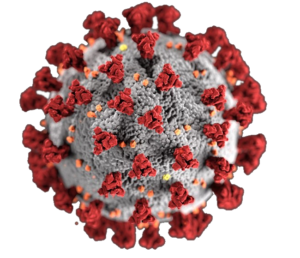Life less about what happens to us and more about how we respond. Our thoughts matter. How we think defines just about every situation in our life. Our thoughts are the primary way that we influence those around us and direct our lives.
We are at a crossroads now. Down one path is worry, doubt, fear; but down the other is prosperity and flowers. With our thoughts we can choose whichever path we want. Personally, I chose the flowery prosperity path. Why the flower path? Because it's a better smelling path and easier on the eyes. It's been proven that those who practice meditation, gratitude, and thoughtwork are happier, more successful, and more fulfilled in life.
“All that a man achieves and all that he fails to achieve is the direct result of his own thoughts.”
~James Allen
Perhaps those of us reading this already know this, and our thoughts are in top-top shape. Fantastic. But we're not done yet; we've just been talking about the power of our thoughts. What about our employees? What do they think about their company, their situation, and the way they've been treated throughout this pandemic?
Keep in mind, a group of employees who are suffering and consistently having negative thoughts will "infect" those around them. We stop this from happening by just giving them the space to vent and the knowledge that they've been heard.
By now you should have spent at least a few minutes talking directly with each of your employees to see how they’ve been doing. Where is their mindset? How worried are they? What thoughts occupy their mind? Knowing this will give you a better understanding the mood and direction of your business to take advantage of any situation.
C'est la Pandemic
Practice Your Mindset
Prepare For Control
Practice being in control, in all areas and environments. When we are in control, we can respond to any situation we find ourselves in; including this one.
When things go awry, taking just 5-minutes to think about the best way forward can make the difference between finding the extra roll of TP behind the sink or reacting and just using your hand.
Reacting
Instant and Instinctual
Reactions are the quick thoughts and actions we have because of a situation. It’s driven by the beliefs, biases, and prejudices of the subconscious mind. Often, reactions are not given much thought; they are fight or flight.
When you react to what’s going on outside of you, whether it's a person, condition, or circumstance, they are in control of you.
Responding
Slower, More Thoughtful
A response is based on a more thourough evaluation of the situation. When you respond to what’s going on around you, then you maintain control.
It’s based on information from both the conscious mind and subconscious mind. A response can take many different long and short term considerations into account.
Responding is obviously the desired response (see what I did there), but it's difficult because it requires one to be in a calm state of mind...to detatch from the situation.
Example Videos
Reacting vs. Responding YouTube Videos
Practice Tip #1
Pause
The next time you find yourself in a moment where you want to initially react, choose to give yourself space to breathe.
You have your own timeline to respond.
Practice Tip #3
Why are you feeling this way?
Pay attention to why you are feeling the way that you are. Pause while you wait for the reactionary feelings to go away, and then consider what the most intelligent and compassionate response would be.
Practice Tip #2
Label Your Feelings
Pay attention to your feelings right now in the moment. How do you feel?
Put a name to your emotion. For instance, insufferable irritation mixed with anxiety to get this job done.
Practice Tip #4
Choose How To Respond
You don’t have to respond immediately. You can pause, breathe, and not act. Wait for the emotional urge come and go. This can take seconds, minutes, or even longer for major hurts.
Practice Tip #5
Like Nike® says, Just Do It! (don’t sue me Nike).
Commit to implementing this technique or another to improve your ability to respond to any situation.
Don’t let the outside world control you; you control the outside world. Each time you rest in your brain’s responsive mode, it gets easier to do it again. Focus on what you can do right now! Next month certainly matters, but the present moment is the only thing we have that we can control. We can control our thoughts and thus respond appropriately in the best way that we can.
Will you be one of those who emerge from this experience viewing the world and business environment as a dark, fearsome, and angry place, or will you be one of the few to let go of the hurt and find new meaning and even a new purpose in your business?
During a crisis, our mindset can literally make or break us. When we dwell on fear, doubt, misery, anger, and blame, the only thing that will come from that is separation, misery, and poverty. But when we focus our minds on what we CAN do, and who we CAN help, and what we CAN control, we can literally survive any catastrophe. We are in control of our future; our circumstances do not control us.
Together, we CAN respond to this situation and thrive.
Interested In Learning More?
Every week we write and speak about grief and practical things we can do to help those in our lives. If you are interested in attending our webinars, submitting stories and questions, or grief training for all management, click the box below to set up an appointment.
We can't wait to discover how we can ease this burden.

